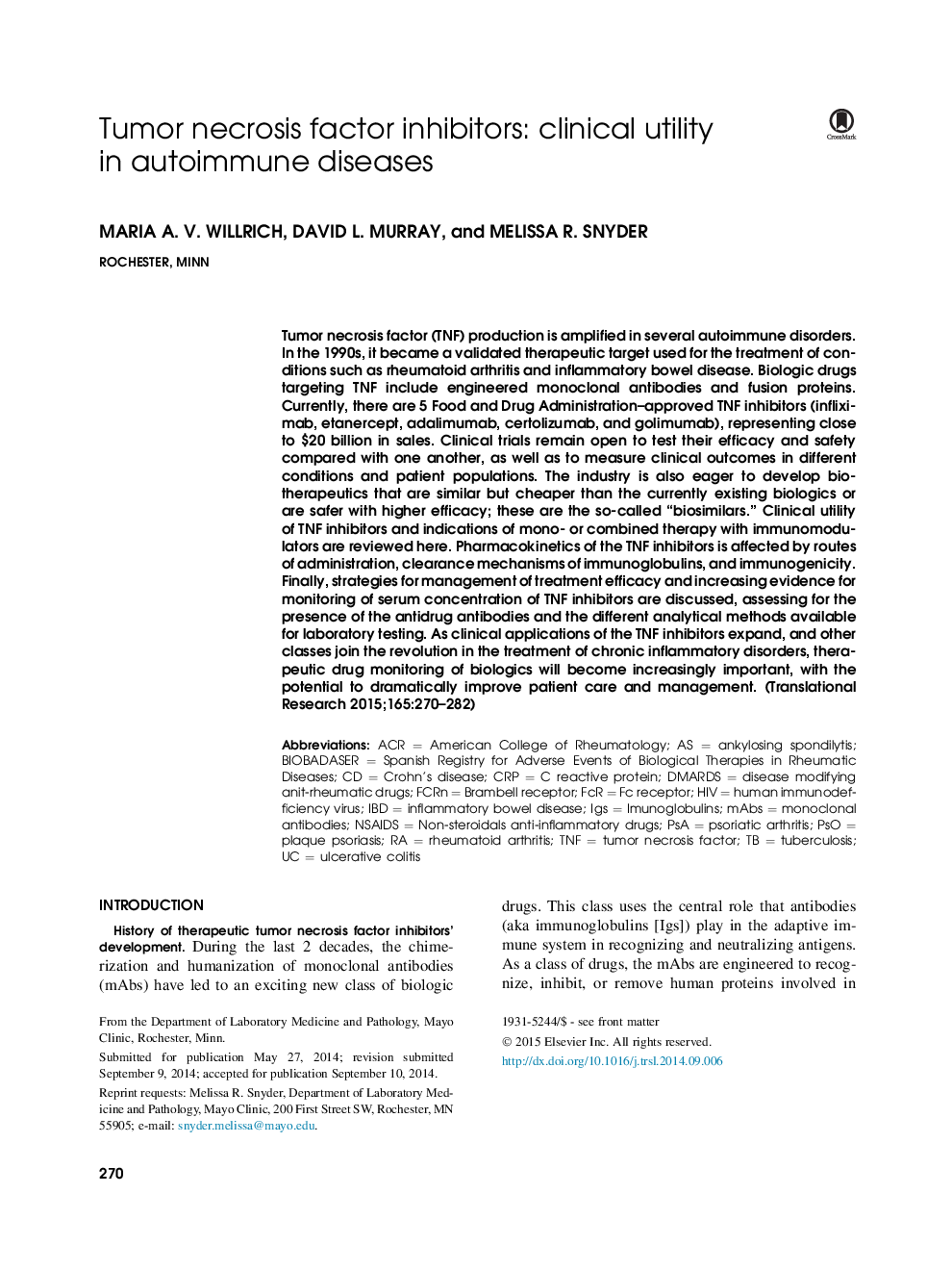| Article ID | Journal | Published Year | Pages | File Type |
|---|---|---|---|---|
| 3840268 | Translational Research | 2015 | 13 Pages |
Tumor necrosis factor (TNF) production is amplified in several autoimmune disorders. In the 1990s, it became a validated therapeutic target used for the treatment of conditions such as rheumatoid arthritis and inflammatory bowel disease. Biologic drugs targeting TNF include engineered monoclonal antibodies and fusion proteins. Currently, there are 5 Food and Drug Administration–approved TNF inhibitors (infliximab, etanercept, adalimumab, certolizumab, and golimumab), representing close to $20 billion in sales. Clinical trials remain open to test their efficacy and safety compared with one another, as well as to measure clinical outcomes in different conditions and patient populations. The industry is also eager to develop biotherapeutics that are similar but cheaper than the currently existing biologics or are safer with higher efficacy; these are the so-called “biosimilars.” Clinical utility of TNF inhibitors and indications of mono- or combined therapy with immunomodulators are reviewed here. Pharmacokinetics of the TNF inhibitors is affected by routes of administration, clearance mechanisms of immunoglobulins, and immunogenicity. Finally, strategies for management of treatment efficacy and increasing evidence for monitoring of serum concentration of TNF inhibitors are discussed, assessing for the presence of the antidrug antibodies and the different analytical methods available for laboratory testing. As clinical applications of the TNF inhibitors expand, and other classes join the revolution in the treatment of chronic inflammatory disorders, therapeutic drug monitoring of biologics will become increasingly important, with the potential to dramatically improve patient care and management.
